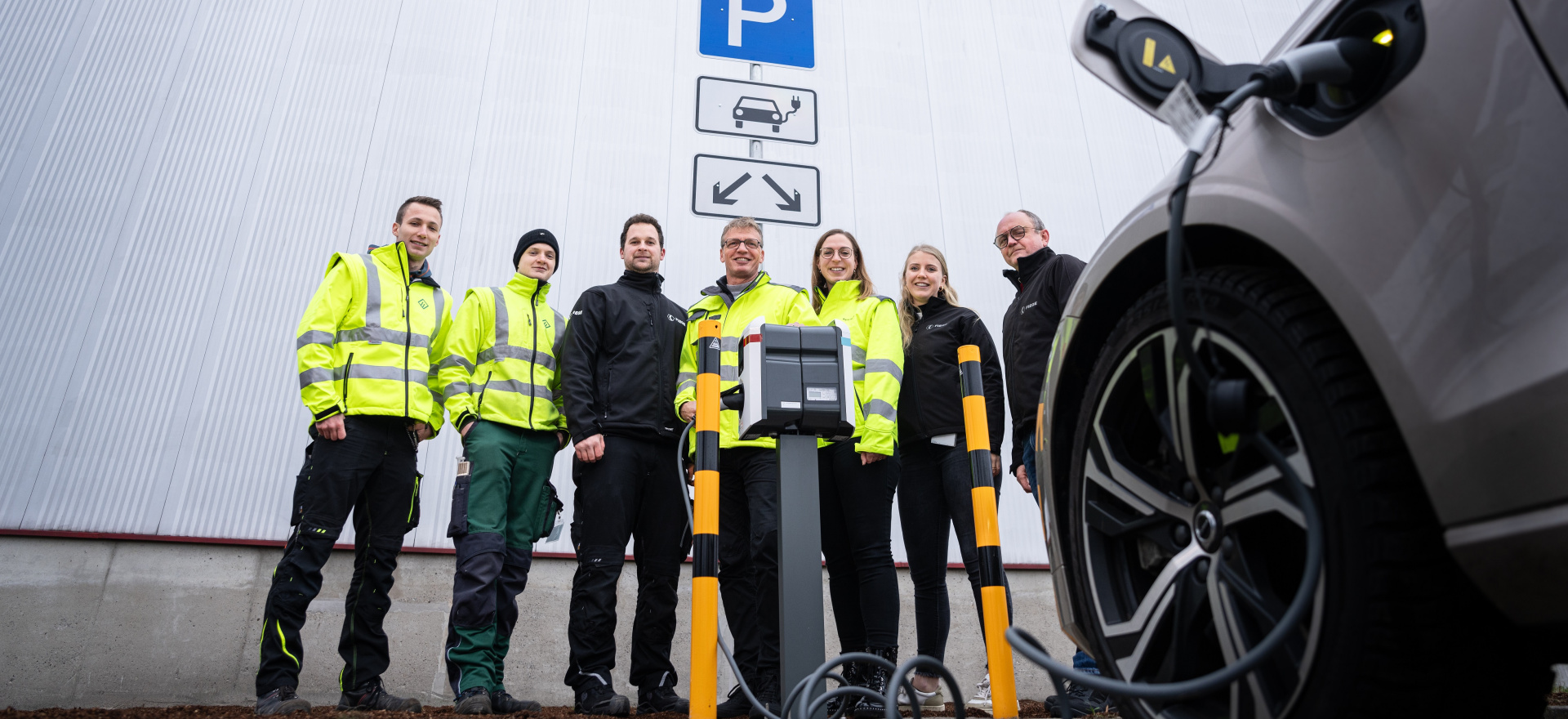FIEGE installs EV charge point no. 150

The logistics company FIEGE is the driving force behind the expansion of its electric mobility infrastructure. At its location in Ibbenbüren, FIEGE charge point no. 150 for EVs in Germany went online.
Sustained growth: The family business FIEGE has installed 18 charge points for electric vehicles at the Mega Center in Ibbenbüren. This brings the total number of EV charge points in the network of locations in Germany by the Greven-based logistics company to over 150, with more to follow this year. By continuously expanding the infrastructure for electric mobility, FIEGE is taking a further step in lastingly lowering the company’s CO2 emissions to net zero.
Marc Borgmann, Head of Energy Management at FIEGE, says: “Last year alone, we were able to install 50 new charge points at various locations. With charge point no. 150 in Germany, we have reached a crucial milestone and are aiming to maintain our fast pace in expanding this network even throughout 2024.”
The developments within Energy Management in Ibbenbüren are not only limited to the expansion of the charging infrastructure. FIEGE’s Branch Manager, Detlev Hornhues explains: “With an eye to the future, we are planning on fitting our logistics centre in Ibbenbüren with a photovoltaic system as well as thermal pumps for the location to turn into something of a small solar power plant. The goal is for the Mega Center’s energy supply to be sustainable.”
With meanwhile 18 EV charge points, Ibbenbüren – next to the company’s headquarters at Münster/Osnabrück airport in Greven (21) and the ultra-modern Healthcare logistics centre in Barleben near Magdeburg (20) – is one of the locations within the World of FIEGE with the highest number of charge points for electric mobility. Last year, around 155,000 kilowatt hours of electricity were charged across the entire FIEGE infrastructure which, given an average consumption of 20 kilowatt hours per 100 kilometres, corresponds to a CO2-neutral mileage of roughly 775,000 kilometres.



